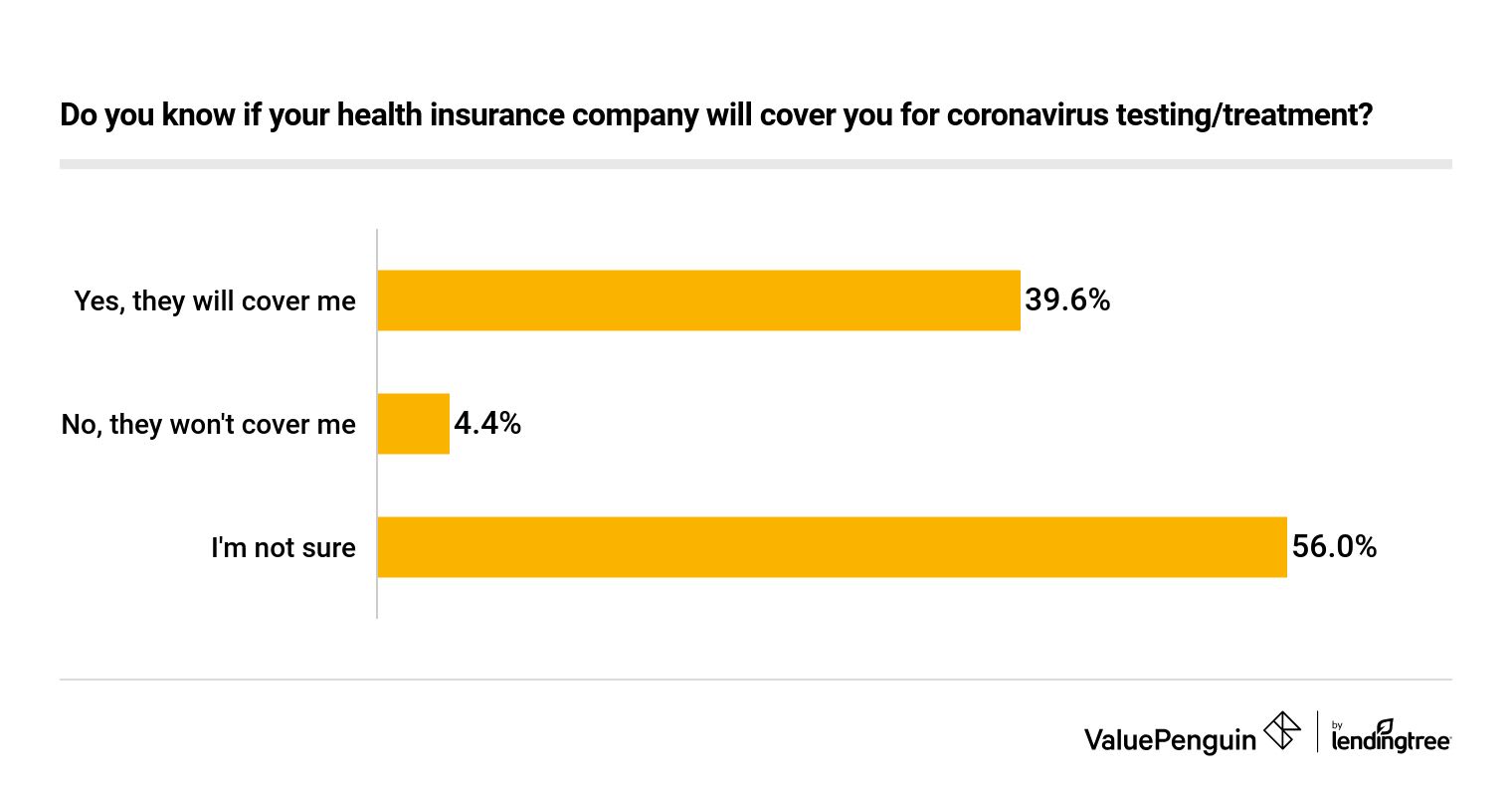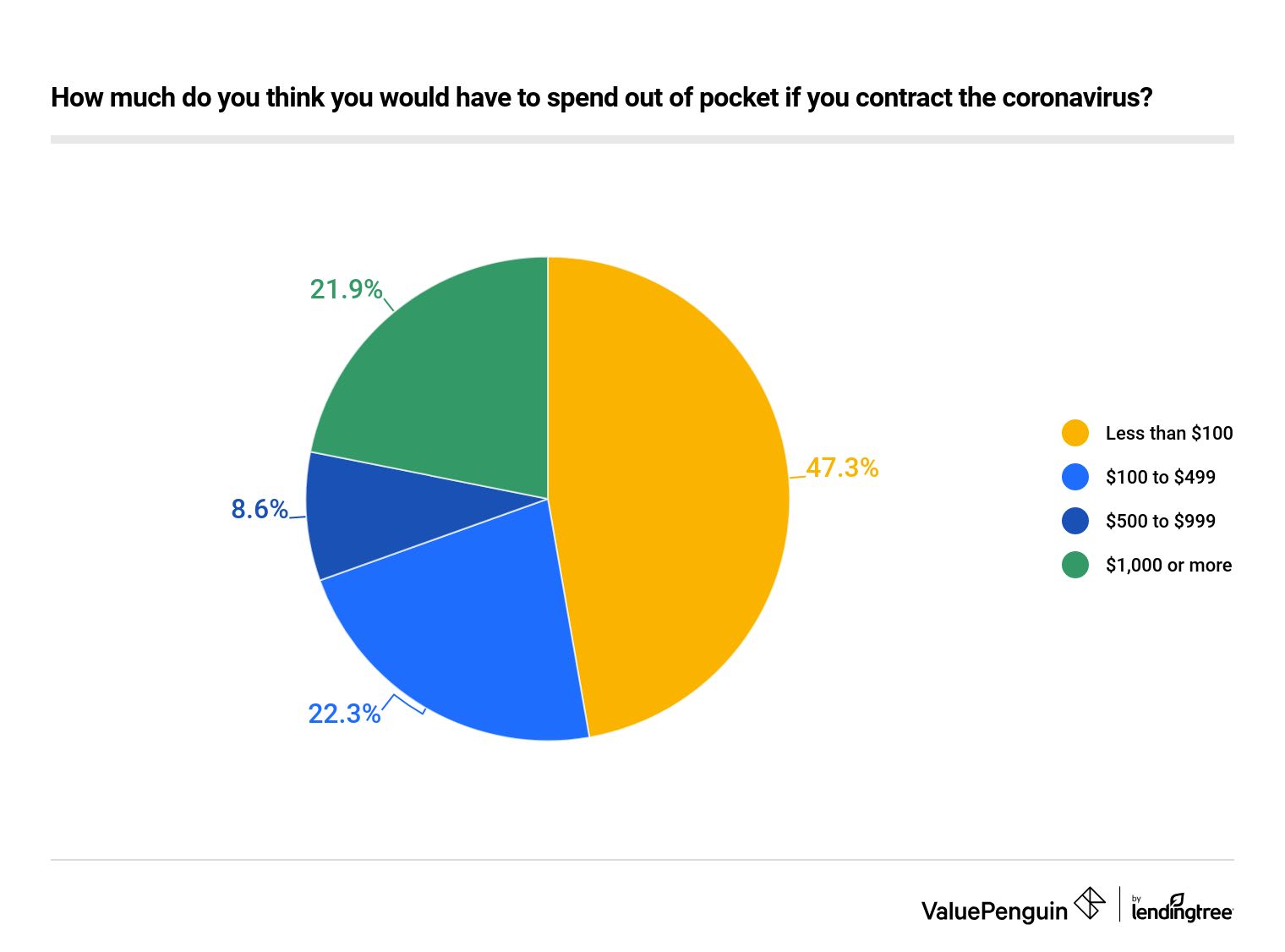Health Insurance
56% of Americans Have No Idea If Their Health Insurance Will Cover Coronavirus

Covid-19, or novel coronavirus, has spread throughout the globe and is now in the U.S. The question now is:
How prepared are Americans, and how worried are they about the flu-like disease that originated in Wuhan, China?
ValuePenguin surveyed more than 1,000 Americans about the coronavirus outbreak, including questions about their worries, how much they have spent in preparation and whether their health insurance will cover COVID-19 treatment. Through this information, we can see a clearer image of Americans' efforts to combat the virus.
- As much as 57% of consumers are at least somewhat worried about contracting coronavirus.
- More than half of Americans have no idea if their health insurance would cover costs associated with treating and testing for coronavirus.
- Nearly a quarter (22%) of Americans have not changed any behavior due to the coronavirus.
- About 1 in 4 Americans have spent $50 or more preparing for COVID-19.
Gen Z, millennials and Gen X are more worried than baby boomers and members of the silent generation.
Furthermore, the younger you are, the less likely you are to feel prepared — 28% of Gen Zers feel unprepared, compared to 13% of baby boomers.
Interestingly, more than half of older generation respondents — baby boomers and those from the silent generation — tended to say they're "not very worried" or "not worried at all" about coronavirus — 56% and 57%, respectively.
Additionally, 45% of Americans don't know if they have sufficient health insurance coverage to support them should they contract coronavirus.

According to our survey, some Americans are reaching out to their health insurance providers to understand coverage limits. When asked, 22% said they've spoken with their insurance company about what they will and will not cover. Millennials, more than any other age group, have been the most proactive about understanding COVID-19 coverage — 34% have contacted their provider.
22% of Americans have not changed any behavior due to the coronavirus
The most common preparation method for Americans has been "washing hands more often" (69%) followed by "avoiding shaking hands with others" (39%).
As much as 15% said they are "wearing a mask in public areas." However, the Centers for Disease Control and Prevention (CDC) says the general public should not purchase and use face masks to try and prevent COVID-19. Instead, these prevention measures should only be used by people who show symptoms of the disease or medical staff who are caring for those infected with the virus.

More males than females have spent "more than $100" preparing for coronavirus
Specifically 15% of males and 7% of females. Typical coronavirus preparation purchases have included food, soap and hand sanitizer.
Nearly half (47%) of Americans think they'd only have to spend less than $100 out of pocket if they contract the coronavirus. Realistically, they'd likely spend much more — with a hospital visit copay being one of the largest expenditures.
Generationally, Gen Xers expected to spend the most out of pocket — 27% responded that they would spend more than $1,000 if they contracted coronavirus. Conversely, only 11% of the silent generation and 16% of baby boomers responded the same way.

When asked if the government should pay for coronavirus testing, close to three-quarters (72%) responded that they should provide funding. Furthermore, more Democrats (84%) compared to Republicans (63%) wanted the U.S. government to use federal funds to support coronavirus testing.
However, according to a new study on coronavirus-related death rates from the Journal of the American Medical Association (JAMA), these age groups should be the most concerned. Patients over 80 years old and between 70 and 79 years old have death rates of 14.8% and 8%, respectively, which is significantly higher than the overall fatality rate of 2.3%.

When broken down by gender, 37% of males said they "strongly agree" that they feel prepared for a potential coronavirus outbreak in their communities. This was substantially higher than that of the female sample — only a quarter (27%) responded "strongly agree."
Methodology
ValuePenguin conducted a survey of 1,010 Americans, with the sample base proportioned to represent the overall population. The survey was fielded online March 4–5, 2020, using Qualtrics.
